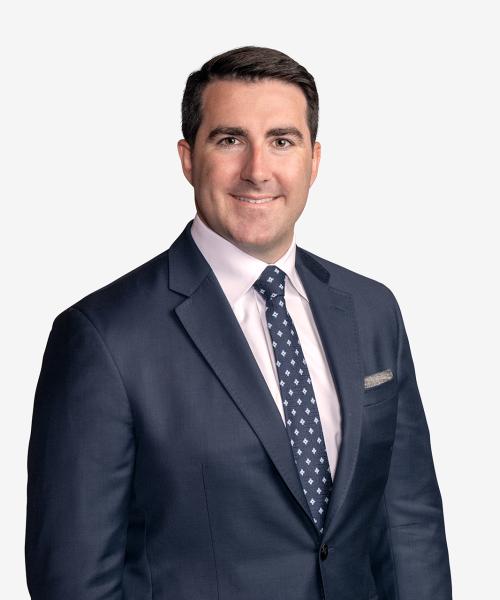Friday Enforcement Wrap: VA Official Pleads Guilty in $2 Million Fraud Scheme
DOJ News
VA Official Pleads Guilty in $2 Million Fraud Scheme
James King, a former US Department of Veterans Affairs official, pled guilty to wire fraud, bribery, and falsifying records to obstruct an administrative investigation. King was a counselor in the Vocational Rehabilitation and Employment program, which provides disabled veterans with education and employment services — counselors advise veterans on what schools to attend and facilitate their tuition payments. King admitted to using his position as a VR&E program counselor to steer veterans to three educational institutions and facilitate payments to the VA, in exchange for seven percent of the money those institutions received from the VA.
The school owners provided false information to King and other VA officials about the education being provided, and King admitted to lying to veterans he was counseling to convince them to attend those institutions. The owners of the three schools have all pleaded guilty to bribing King in this scheme. King will be sentenced on January 15, 2019.
Read the DOJ press release here.
Pharmacies to Pay $1.85 Million for Improperly Dispensing Controlled Substances
Passavant Memorial Homes and its subsidiaries Passavant Development Corporation, PDC Pharmacy Philadelphia, PDC Pharmacy Pittsburgh, and PDC Pharmacy Colorado entered into a $1.85 million settlement agreement with the United States to resolve claims that Passavant violated the Controlled Substances Act and False Claims Act by dispensing controlled substances to individuals without a prescription, and in some cases submitting claims for those drugs to Medicare and Medicaid.
Read the DOJ press release here.
Community Mental Health Clinics Agree to $3 Million Consent Judgment and Federal Healthcare Exclusions
Northeast Community Mental Health Centers, Lehigh Valley Community Mental Health Centers, and Carolina Community Mental Health Centers, along with their principals, Melchor Martinez and Melissa Chlebowski, entered into a $3 million consent judgment with the US Attorney’s Office for the Eastern District of Pennsylvania in a False Claims Act lawsuit. Martinez had been excluded from participation in federal healthcare programs as a result of a Medicare fraud conviction in 2000, but he and Chlebowski nonetheless operated the three facilities and received payments from Medicaid and Medicare.
A whistleblower filed a lawsuit, in which the government intervened, alleging that all of the facilities’ claims for Medicaid and Medicare payments were false under a “fraudulent inducement” theory because Chlebowski’s Medicaid and Medicare enrollment applications failed to disclose that Martinez managed the clinics. In addition to the $3 million settlement payment, Chlebowski and the mental health facilities are excluded from participating in federal healthcare programs, and Martinez’s exclusion was extended for an additional 10 years.
Read the DOJ press release here.
Litigation Developments
Wyoming Attorney General Sues Purdue Pharma for State Medicaid False Claims
Wyoming Attorney General Peter Michael filed a lawsuit against Purdue Pharma L.P., Purdue Pharma Inc., and The Purdue Frederick Company, the maker of OxyContin, for violating the Wyoming Consumer Protection Act and state Medicaid False Claims Act. The suit alleges that Purdue misrepresented the risks of opioids, convincing healthcare providers to prescribe opioids for longer periods of time and at higher doses than necessary, which in turn caused the providers to submit false claims to Medicaid. The case is Wyoming ex rel. Michael v. Purdue Pharma L.P., No. 190-576 (Wy. Dist. Ct. 2018).
US Appeals Court Vacates Healthcare Fraud Conviction
The United States Court of Appeals for the Tenth Circuit vacated a doctor’s conviction for healthcare fraud. In 2016, Dr. Steven DeLia was charged with signing blank prescriptions for his physician’s assistant to fill for patients while he was deployed to Afghanistan in 2010, thereby defrauding the Oklahoma Medicaid program by causing false claims to be submitted for services not rendered by a qualified medical professional. A jury found Dr. DeLia guilty of that count.
The Tenth Circuit vacated the conviction on the ground that the five-year statute of limitations had expired on the charge and the Wartime Suspension of Limitations Act—which tolls the statute of limitations for criminal fraud cases brought by the federal government—did not apply because Dr. DeLia was charged with defrauding an Oklahoma agency. The court also found Dr. DeLia’s waiver of the statute of limitations ineffective because the latter had already expired when he signed the waiver. The case is United States v. DeLia, 2018 WL 5316401, --- F.3d --- (10th Cir. 2018).
Father and Son Plead Guilty to $27 million ACA Fraud
A father and son, Jeffrey White, 60, and Nicholas White, 33, pled guilty to one count of conspiracy to commit healthcare fraud in connection with a $27 million scheme to fraudulently enroll individuals in Affordable Care Act healthcare plans and receive kickbacks from various drug treatment programs. The family allegedly created fake residential leases and corresponding telephone numbers that connected to phones they controlled, and then they paid for the individuals’ insurance premiums and transportation to California, where the individuals were placed in expensive substance abuse treatment programs. The program received thousands of dollars a week from the ACA plans and the defendants received kickbacks for each referral. The cases are United States v. White, Nos. 18-cr-249 and 18-cr-250 (D. Conn. 2018).
Health and Human Services
HHS Analyzed Medicaid Managed Care Organization
In Advisory Opinion No. 18-11, the Department of Health and Human Services Office of the Inspector General analyzed whether a Medicaid managed care organization could pay the healthcare providers with which it contracts to increase the amount of Early and Periodic Screening, Diagnostic, and Treatment services they provide to the MCO’s Medicaid members.
According to the OIG, because the MCO proposed paying Network Providers to increase their services to Medicaid beneficiaries in exchange for payment under a federal healthcare program, the proposal could violate the Federal Anti-Kickback Statute. OIG explained, however, that the arrangement could fall under a safe harbor for “eligible managed care organizations” if the parties have a written agreement signed by the parties that itemizes the items and services covered by the agreement; lasts for a period of at least one year; and states that the provider cannot seek payment from a federal healthcare program for the items or services covered by the agreement.
Further, the parties may not give or receive remuneration in exchange for business for which a federal healthcare program may make a payment. Providers and MCOs should be sure to review their agreements in light of this guidance.
HHS Expedites Application of 340B Program Penalties
HHS also issued a notice of proposed rulemaking expediting the effective date of implementation of penalties against drug manufacturers for intentionally overcharging drugs in the 340B program. The American Hospital Association and other interested groups had sued HHS to force HHS to implement the penalty policy, and in response, HHS moved up the effective date of the policy from July 1, 2019 to January 1, 2019, and provided for a brief comment period of 21 days, reasoning that HHS “no longer believes a delay in the effective date is necessary.” The case is American Hospital Association v. HHS, No. 1:18-cv-02112 (D.D.C. 2018).
Contacts
- Related Industries
- Related Practices




